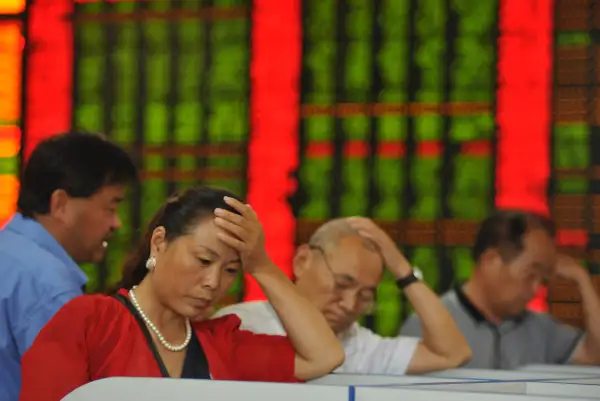Plunging Chinese Stocks In Your Index Fund? Here Are 4 Things You Need To Know
Money is not a client of any investment adviser featured on this page. The information provided on this page is for educational purposes only and is not intended as investment advice. Money does not offer advisory services.

Since China's stock market began to plunge in mid June, there have been few places for investors to hide.
Still, the hardest-hit equities have been China's so-called "A" shares that trade on mainland exchanges and up until recently have been difficult for foreigners to own. Stocks listed on the Shanghai and Shenzen exchanges have already lost a third or more of their value since June 12.
By comparison, "H" shares that trade in Hong Kong and that can be found in U.S. funds are down a more modest 18%.
That may be cold comfort if your portfolio has taken a hit, but at least U.S. fund investors have been shielded from the worst of the country's market turmoil.
Yet that's about to change.
Vanguard, which runs the largest fund that focuses on companies in emerging markets such as China, has said it plans to add mainland A-shares to its Vanguard Emerging Markets Stock Index fund later this year.
Other companies may follow soon.
In a bit of lousy timing, Vanguard announced the move on June 2 — less than two weeks before Shanghai and Shenzen listed stocks began to tank. In a company release, Vanguard chairman Bill McNabb noted: "As the first major emerging markets fund to add exposure to China A-shares, the fund will benefit investors with more diversification, deeper emerging markets exposure, and greater access to the growth potential of Chinese equities."
Here's what else you need to know:
The difference in Chinese stocks
U.S. investors that own emerging market equity funds have long had at least some exposure to China, primarily through H-shares. These Hong Kong-listed companies represent only about one third of the Chinese stock market. They also have somewhat limited exposure to the commodity-related sectors that have been hit hard amid global economic slowdown fears.
Much of the news surrounding China's stock plunge has centered on A-shares listed in Shanghai and Shenzen and that are considered the purest China plays.
In the 12 months leading up to their June peak, A-shares' prices more than doubled. Since then they have plunged by a third. Unlike H-shares, A-shares have a fair amount of exposure to the commodity-related basic materials and industrial sectors.
Why A-shares may be coming to your fund
Historically the Chinese government has limited foreign investors' ability to own A-shares.
But recently, those restrictions have begun to ease. Some investment managers have been awarded quotas allowing them to purchase blocks of shares and observers expect the practice to steadily increase over time.
Since stock index funds aim to own all the securities in a given market, it's natural that index fund managers would move to hold A-shares sooner or later. Of course, the fact that until recently A-shares had been on a tear didn't hurt the case.
When your fund will own A-shares
Vanguard said in early June that it would start incorporating the A-shares into its $60 billion Emerging Market Stock Index fund and ETF after being granted one of the government quotas.
Luckily for Vanguard investors, the company doesn't plan to start actually undertaking this move until later this year. A spokeswoman said Vanguard has not yet actually added A-shares to the fund.
Vanguard's rival BlackRock was still more conservative. While BlackRock may add A-shares to its $23 billion iShares MSCI Emerging Markets ETF eventually, it skipped the chance to do so earlier this year.
Should you be worried?
While Chinese stocks will almost certainly continue to be volatile, chances are they represent a small piece of your overall portfolio. That's not likely to change much, especially since, even as U.S. mutual funds do begin to incorporate A-shares, they will do so slowly.
While A-shares account for more than half the value of the total Chinese stock market and about a third of all emerging markets stocks, Vanguard has said that, at least at first, A-shares will make up only 5.6% of its emerging markets fund.
Considering most U.S. investors have less than 10% of their investment portfolios devoted to emerging markets stocks, A-shares aren't likely to make up more than a tiny fraction of your overall investments.
Of course, there may be plenty of upside to owning Chinese stocks too — if you have the time and patience.
China's still-fast growing economy accounts for 11% of global trade and 8% of global consumption, according to Vanguard.
In the long run A-shares have delivered handsomely for investors, posting an average annual return of more than 16% for the past ten years through the end of July. The average annual return of U.S. stocks over that period: less than 8%.
Read next: 3 Charts That Explain the Stock Market’s Correction
//cdn.playbuzz.com/widget/feed.js
